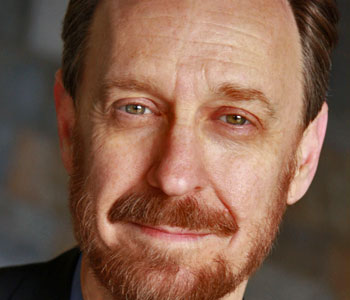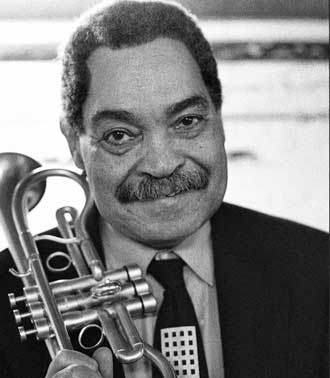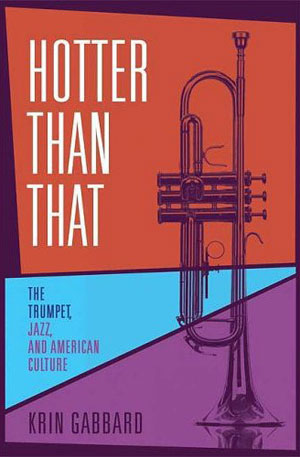
This book is about the trumpet, but it brings the subject to life with several different approaches. First, it is a cultural history of the instrument, from the oldest surviving trumpets that were buried with King Tut over 3000 years ago. The book extends this history through ancient Greece and Rome, to the Crusades, and to the Renaissance, when men stood on the walls of European cities with long trumpets to sound a warning if enemies approached. The history continues through the Baroque period when Bach and Handel wrote extremely difficult music for the “natural trumpet,” the regal brass instrument without valves, to the 19th century when the valved trumpet finally appeared. Hotter Than That looks at the role of the trumpet in imaginative literature, in the ceremonies of the court, and in religious practice, as well as in music. Readers may be surprised to learn that the trumpet was not primarily a “musical” instrument until well into the 16th century. Second, the book explores the culture of the trumpet: who played the horn, why they played it, and what they got from playing it. There is also a section on the many great trumpeters who died young, whether or not their deaths were directly related to the sacrifices they made to play the trumpet. Third, the book is a new history of jazz built around the discovery of the trumpet’s potential as a jazz instrument in the early days of the 20th century. After looking at the first jazz trumpeters in New Orleans, Hotter Than That gives a detailed account of how musicians such as Louis Armstrong, Dizzy Gillespie, Roy Eldridge, Miles Davis, Wynton Marsalis, and many others continued to transform the instrument and, along with it, American culture. Fourth, the book reveals the techniques for making a trumpet, describing methods at several different trumpet factories, in the United States as well as in Europe. Special attention is given to the huge factory in Elkhart, Indiana, where artisans make the Bach Stravidarius, the best-selling trumpet in the world, as well as the boutique factory in Portland, Oregon, run by David Monette, who makes the extremely expensive trumpets played by Wynton Marsalis and a handful of other professionals. Finally, the book is an often funny account of my own attempts to play the trumpet and make it part of my life.
“When sons and grandsons of slaves created jazz in the early 20th century by playing the trumpet loudly and aggressively, they found a brand new way to assert themselves as men. Any other assertion of masculinity might have got them lynched!”
The basic thesis of Hotter Than That is that the trumpet has been associated, rightly or wrongly, with masculinity. The men who have played it have jealously guarded their exclusive access to the instrument. In one tribe along the Amazon, for example, if a woman so much as looked at a trumpet, she was killed. Perhaps because it can make more noise than just about anything except a bomb blast, men have used the trumpet for ceremonies, most notably the welcoming of kings. A monarch succeeds grandiloquently in establishing his power if his trumpeters make a terrible racket before he arrives on the scene. Of course, a trumpet makes the first sound that a soldier hears in the morning and the last sound he hears as he falls on the battlefield. In the religion of God the Father, we know that a trumpet brought down Jericho and that a trumpet call will announce the End of Days. When sons and grandsons of slaves created jazz in the early 20th century by playing the trumpet loudly and aggressively, they found a brand new way to assert themselves as men. Any other assertion of masculinity might have got them lynched! These audacious young black men must have been astounded when white people smiled and applauded their music rather than warning them about being “uppity.”
Many white men have even sought to enhance their own masculinity by imitating African American trumpeters. This is not to say that women cannot and have not played the trumpet. The book documents the many contributions that women have made to the instrument’s history. There is no denying, however, that the trumpet has been made to serve the needs of men throughout its history.

A casual reader might want to start with page 106, the beginning of “Bending Brass,” the chapter in which I tell the story of my own experience with the trumpet. After playing in grade school and high school, I gave up the trumpet because most of the people in my college dormitory in the late 1960s preferred Frank Zappa and Paul Butterfield to Miles Davis and Louis Armstrong. Although I played in a brass quintet at a Swedish Lutheran church, I really wanted to play jazz. Furthermore, I had crooked teeth that made my horn droop down from my mouth instead of straight out in the heroic posture of the powerful trumpeter. So I quit. Thirty-five years later, I got my teeth fixed. Shortly thereafter I bought a Bach Stradivarius middle-weight trumpet and began taking lessons. Although I made VERY slow progress, I did spend some time playing with a Latin band in East Harlem. For a brief period I was the band’s lead trumpeter, and on one glorious occasion I hit all seven of the high Cs in a solo in one of the numbers that the band regularly played! I was on Cloud Nine. My fascination with the horn led me to read up on its history and visit several trumpet factories. At the Monette factory, I made friends with David Monette, one of the most fascinating characters in the trumpet world today. At the end of the chapter I tell the story of my bet with Monette. He promised to give me a $200 gold-plated mouthpiece if I could identify several tiny images engraved on the elaborate flumpet that he had made for the great jazz artist, Art Farmer. Knowing that Art switched between trumpet and flugelhorn, Monette invented a horn that was midway between the two, hence “flumpet.” Read the end of the chapter to find out if I won the bet.
“[David Monette] promised to give me a $200 gold-plated mouthpiece if I could identify several tiny images engraved on the elaborate flumpet that he had made for the great jazz artist, Art Farmer. Knowing that Art switched between trumpet and flugelhorn, Monette invented a horn that was midway between the two, hence ‘flumpet.’”
There is no book like Hotter Than That. There are a handful of histories of the trumpet, but they are extremely technical and academic. I like to believe that I have made the instrument come alive as a force in people’s lives. This is why I have included my own experience of the horn along with the role the trumpet has played at different historical moments. One reviewer said that the book is about how music helps us discover love and that through love we discover the world. The book goes beyond the technical aspects of the trumpet’s history and its manufacture and looks at how people have devoted themselves to playing this most difficult of instruments. Only someone who really loves the horn and the music it makes can master it. I hope that people who read the book will understand what it means to love the horn and its sound.


Krin Gabbard is Professor of Comparative Literary and Cultural Studies at the State University of New York at Stony Brook. He has written on jazz, film, psychoanalysis, and African American studies. His books include Jammin’ at the Margin: Jazz and the American Cinema (1996), Psychiatry and the Cinema (2nd edition, 1999), and Black Magic: White Hollywood and African American Culture (2004). He lives in New York City where he plays the trumpet – not very well – with whomever will let him join in.